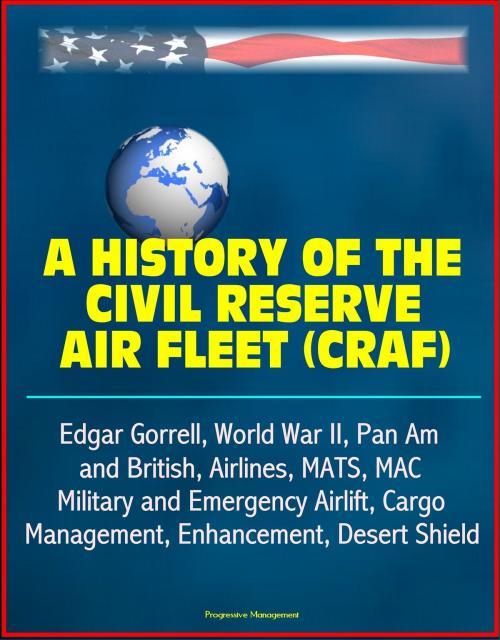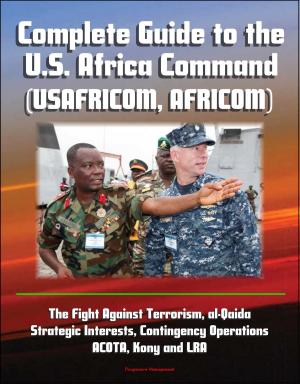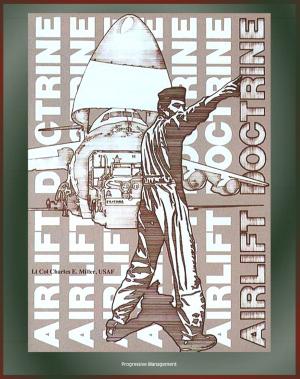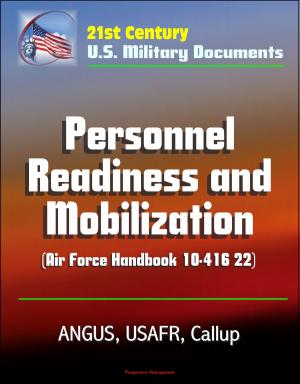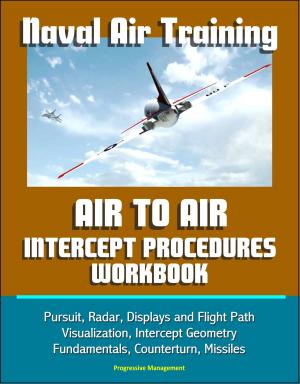A History of the Civil Reserve Air Fleet (CRAF) - Edgar Gorrell, World War II, Pan Am and British, Airlines, MATS, MAC, Military and Emergency Airlift, Cargo, Management, Enhancement, Desert Shield
Nonfiction, Reference & Language, Transportation, Aviation, Commercial, History, Military| Author: | Progressive Management | ISBN: | 9781310929304 |
| Publisher: | Progressive Management | Publication: | July 26, 2015 |
| Imprint: | Smashwords Edition | Language: | English |
| Author: | Progressive Management |
| ISBN: | 9781310929304 |
| Publisher: | Progressive Management |
| Publication: | July 26, 2015 |
| Imprint: | Smashwords Edition |
| Language: | English |
Professionally converted for accurate flowing-text e-book format reproduction, this Air Force publication tells the story of the Civil Reserve Air Fleet (CRAF). Rooted in the late 1930s, the CRAF story revolved about two points: the military requirements and the economics of civil air transportation. Subsequently, the CRAF concept crept along for more than fifty years with little to show for the effort, except for a series of agreements and planning documents. The tortured route of defining and redefining of the concept forms the nucleus of the this history. Unremarkable as it appears, the process of coordination with other governmental agencies, the Congress, aviation organizations, and individual airlines was both necessary and unavoidable; there are lessons to be learned from this experience. Although this story appears terribly short on action, it is worth studying to understand how, when, and why the concept failed and finally succeeded. The payoff came during the Persian Gulf War, over the period from August 1990 until January 1991, when the CRAF flew in support of Operation Desert Shield. The CRAF provided the "greatest airlift in history," eclipsing in some aspects even the 1948-1949 Berlin Airlift. The statistics were staggering: during those 165 days the CRAF transported some 400,000 troops and 355,000 tons of cargo from the U.S. east coast to the Arabian Peninsula, an average distance of 7,000 miles. By May 1991 CRAF aircraft had transported 60 percent of the troops and 25 percent of the cargo.
Chapter I - The Roots of the Civil Reserve Air Fleet * The Army and Air Transport * Enter Edgar Gorrell * War Clouds, Air Transport, and Military Airlift Requirements * Chapter II - The Air Transport Industry in World War II * Pan Am and the British: Showing the Way * Organizing Air Transport for War * Across the Oceans * Summary and Analysis * Chapter III - Birth of the Civil Reserve Air Fleet, 1947-1951 * The Airlines and Strategic Military Airlift * CRAF: The Conception * CRAF: The Gestation * Summary and Analysis * Chapter IV - Shaping the Civil Reserve Air Fleet, 1952-1954 * Military Air Transport Service and the Airlines * Introducing the Civil Reserve Air Fleet * Organizing the Civil Reserve Air Fleet * Summary and Analysis * Chapter V - A Period of Redefinition, 1955-1962 * A Redefined Environment: MATS and the Airlines * Redefining CRAF: Structure and Strategy * Strategy Redefined * Summary and Analysis * Chapter VI - An Era of Modernization, 1963-1972 * Refining CRAF Management and Organization * New Contracts * Revisiting the Environment: The Airlines vs. MAC * MAC, the Airlines, and the Vietnam War * The "Competition Issue" Revisited * Summary and Analysis * Chapter VII - CRAF Enhancement, 1973-1979 * The Strategic and Economic Environment * Bonus Awards * CRAF Enhancement * Summary and Analysis * Chapter VIII - Management Challenges in a New Era, 1980-1987 * Airlift Shortfall—Strategic Demand and Economic Reality * Advancing CRAF Enhancement * CRAF Management—Looking Ahead * Summary and Analysis * Chapter IX - CRAF in Operation Desert Shield * Activation of CRAF Stage I * Quest for Additional Commercial Airlift * Conclusion: An Assessment of CRAF * Bibliographic Essay
Professionally converted for accurate flowing-text e-book format reproduction, this Air Force publication tells the story of the Civil Reserve Air Fleet (CRAF). Rooted in the late 1930s, the CRAF story revolved about two points: the military requirements and the economics of civil air transportation. Subsequently, the CRAF concept crept along for more than fifty years with little to show for the effort, except for a series of agreements and planning documents. The tortured route of defining and redefining of the concept forms the nucleus of the this history. Unremarkable as it appears, the process of coordination with other governmental agencies, the Congress, aviation organizations, and individual airlines was both necessary and unavoidable; there are lessons to be learned from this experience. Although this story appears terribly short on action, it is worth studying to understand how, when, and why the concept failed and finally succeeded. The payoff came during the Persian Gulf War, over the period from August 1990 until January 1991, when the CRAF flew in support of Operation Desert Shield. The CRAF provided the "greatest airlift in history," eclipsing in some aspects even the 1948-1949 Berlin Airlift. The statistics were staggering: during those 165 days the CRAF transported some 400,000 troops and 355,000 tons of cargo from the U.S. east coast to the Arabian Peninsula, an average distance of 7,000 miles. By May 1991 CRAF aircraft had transported 60 percent of the troops and 25 percent of the cargo.
Chapter I - The Roots of the Civil Reserve Air Fleet * The Army and Air Transport * Enter Edgar Gorrell * War Clouds, Air Transport, and Military Airlift Requirements * Chapter II - The Air Transport Industry in World War II * Pan Am and the British: Showing the Way * Organizing Air Transport for War * Across the Oceans * Summary and Analysis * Chapter III - Birth of the Civil Reserve Air Fleet, 1947-1951 * The Airlines and Strategic Military Airlift * CRAF: The Conception * CRAF: The Gestation * Summary and Analysis * Chapter IV - Shaping the Civil Reserve Air Fleet, 1952-1954 * Military Air Transport Service and the Airlines * Introducing the Civil Reserve Air Fleet * Organizing the Civil Reserve Air Fleet * Summary and Analysis * Chapter V - A Period of Redefinition, 1955-1962 * A Redefined Environment: MATS and the Airlines * Redefining CRAF: Structure and Strategy * Strategy Redefined * Summary and Analysis * Chapter VI - An Era of Modernization, 1963-1972 * Refining CRAF Management and Organization * New Contracts * Revisiting the Environment: The Airlines vs. MAC * MAC, the Airlines, and the Vietnam War * The "Competition Issue" Revisited * Summary and Analysis * Chapter VII - CRAF Enhancement, 1973-1979 * The Strategic and Economic Environment * Bonus Awards * CRAF Enhancement * Summary and Analysis * Chapter VIII - Management Challenges in a New Era, 1980-1987 * Airlift Shortfall—Strategic Demand and Economic Reality * Advancing CRAF Enhancement * CRAF Management—Looking Ahead * Summary and Analysis * Chapter IX - CRAF in Operation Desert Shield * Activation of CRAF Stage I * Quest for Additional Commercial Airlift * Conclusion: An Assessment of CRAF * Bibliographic Essay
